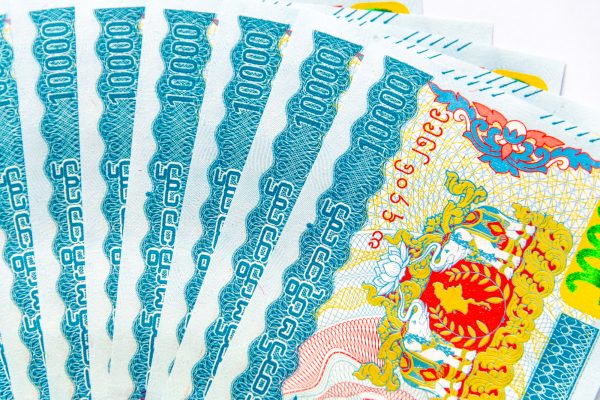ASEAN Beat | Economy | Southeast Asia
The move is designed to strengthen further the junta’s control of foreign currency flows, amid Myanmar’s full-spectrum economic crisis.
On Wednesday, in the latest move designed to shore up its rickety currency, Myanmar’s central bank ordered ministries and other government agencies to cease using foreign currencies for domestic transactions.
In a statement, Win Thaw, the deputy governor of the Central Bank of Myanmar (CBM), said that the use of foreign currencies for domestic payments could lead to higher demand for dollars and cause exchange rate instability.
“Myanmar kyat’s currency should be used in domestic payments and respective ministries, regional and state governments…. should instruct your organizations as necessary,” said Win Thaw, who was appointed to his post after the military coup of February 2021. “In addition to the increasing demand for foreign currency, the exchange rate may fluctuate due to the practice of receiving and disbursing foreign currency for goods and services purchased within the country.”
Myanmar’s economy has been in disarray since the military’s seizure of power, which terminated a halting experiment in political reform. The coup prompted large-scale street protests and work stoppages, which prompted violent crackdowns by the military junta and disruptions to critical services like telecommunications, banking, health, and education. Western nations have also re-erected the wall of sanctions that they gradually removed during the decade of reform.
As a result, the World Bank estimated, Myanmar’s economy shrank 18 percent in the fiscal year ending September 2021. The Bank predicts paltry growth of 1 percent this year, a figure that seemingly has nowhere to go but down, as armed conflict continues to spread across the country.
The foreign currency order is the latest in an effort by the military administration to exert more control over foreign currency flows and to shore up the shaky value of the kyat, which has seen wild swings in value since the coup. From a black market rate of 1,330 to the U.S. dollar at the time of the military takeover, the currency plunged to an all-time low of 2,200 in September 2021, after the CBM abolished a rule that kept the kyat-U.S. dollar exchange rate loosely pegged to the bank’s reference rate. The rate has since stabilized to around 1,800 kyat to the dollar.
The order came after the CBM last month ordered banks and other holders of foreign currency to convert these deposits into kyat, giving holders of foreign currency one day to exchange their holdings for kyats at licensed banks. The central bank said that absent a special exemption, transfers of foreign currency abroad can only be carried out via licensed Foreign Exchange Trading banks. The extreme move prompted immediate protests from foreign firms and chambers of commerce in Myanmar, forcing the CBM to exempt a range of foreign entities from the rule.
In a broader sense, the order marks another incremental step back toward the toxic mixture of wild-west capitalism and economic autarchy that existed under the old military dictatorship prior to 2011. It is clearly a move born of desperation. Even if it succeeds at ameliorating the country’s foreign currency crisis, it will unlikely have much impact on the long-term survival of the military junta.


